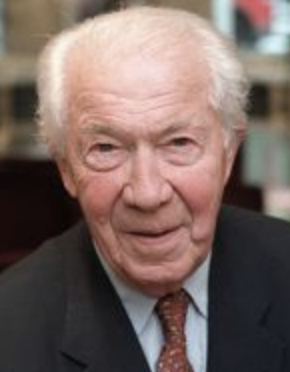On this date in 1917, Nobel Prize-winning scientist Christian de Duve was born to Belgian parents in Surrey, England. He later moved to Belgium and during World War II served as a medic in the Belgian Army. He received his Ph.D. in chemistry in 1945 from the Catholic University of Leuven. His thesis focused on insulin, the chemical that regulates blood sugar and when not produced causes diabetes. He married Janine Herman in 1943. They had had two sons, Thierry and Alain, and two daughters, Anne and Françoise.
De Duve became a professor at the Catholic University of Leuven in 1947 and in 1962 also became associated with Rockefeller Foundation laboratories in New York City. His work focused on subcellular biochemistry, cell biology and the origin of life.
He discovered two types of cell organelles: peroxisomes and lysosomes. His research furthered understanding of genetic disorders such as Tay-Sachs disease. De Duve shared the 1974 Nobel Prize for Physiology or Medicine with Albert Claude and George Palade for their work on cell structure. The three are recognized as the fathers of the field of modern cell biology.
While raised Catholic, de Duve tended toward agnosticism if not outright atheism. He strongly supported biological evolution and dismissed creation science and intelligent design, as explicitly stated in his last book, Genetics of Original Sin: The Impact of Natural Selection on the Future of Humanity (2010). In declining health at age 95, he chose to end his life with the aid of two doctors. Euthanasia is legal in Belgium. (D. 2013)


